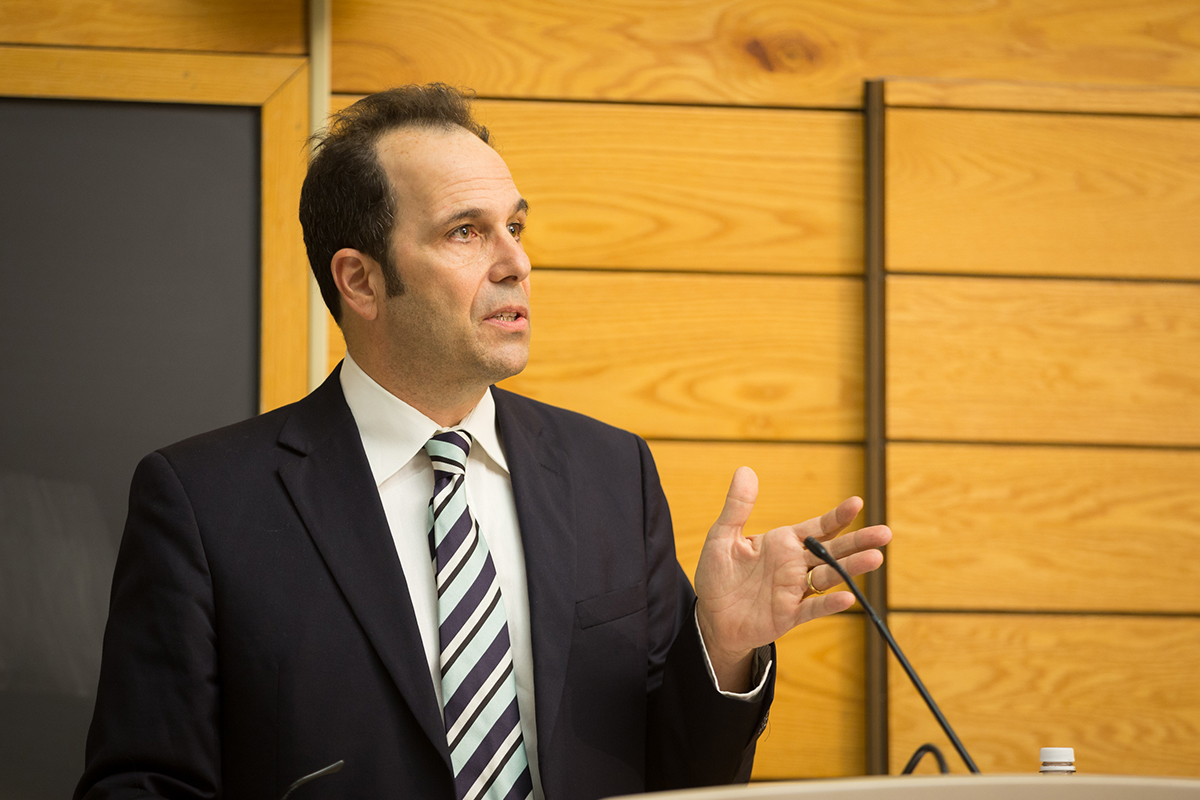Lecture launches Shoah Foundation archives at Cornell
By Amanda Bosworth

In the 1994 Rwandan genocide, neighbors killed lifelong neighbors, husbands killed wives and parents killed children. It was an intimate conflict, according to Philip Gourevitch ’86, staff writer for The New Yorker and an experienced reporter on the Rwandan genocide.
Before the conflict, members of the Hutu majority and Tutsi minority lived as neighbors and intermarried. When the national government initiated a program of Tutsi elimination, many Hutu parents killed their half-Tutsi children. One year later, Gourevitch went to Rwanda and started interviewing survivors and perpetrators.
On Nov. 3 in Lewis Auditorium, Gourevitch spoke on “Memory and Genocide” to launch Cornell’s access to the USC Shoah Foundation Visual History Archives, a repository of some 53,000 individual testimonies of survivors of the Nazi Holocaust, the Rwandan genocide, the Nanjing massacre and the Armenian genocide. The archive includes interviews with Hutus and Tutsis, as does Gourevitch’s 1998 book, “We Wish to Inform You That Tomorrow We Will Be Killed With Our Families: Stories From Rwanda,” and his forthcoming book, “You Hide That You Hate Me and I Hide That I Know: Living With It in Rwanda.”
Gourevitch told the story of a Hutu perpetrator named Kasimari, with whom he spoke on multiple trips to Rwanda. Kasimari said that the first time he killed, it was because the state expected it. But over time, he did it for himself: “‘It was a pleasure, it was exciting. It was like I got up to go on a hunt, a human hunt … We killed them like animals, and they took it like animals.’” Kasimari’s wife is Tutsi, and he protected her from other Hutus while chasing down her family.
Gourevitch said that no separation existed between these two ethnic groups prior to the genocide – and no physical separation exists today. The healing process has been facilitated by 12,000 local gacacas – communal justice courts in which perpetrators were encouraged to fully admit their specific crimes. The motto of gacaca was “truth heals.” It was a way of publicly determining which Hutus were actually guilty of acts of violence and which were simply bystanders. Community members could tell the court if they thought the accused was lying. An atmosphere of honesty and local, case-by-case sentencing has allowed communities to begin moving forward, according to Gourevitch. Instead of wondering if the guy walking past you in the street is “hiding that he forgot to kill you,” all is out in the open.
This spring, the archive will open these stories to researchers at Cornell and in the local community. The lecture was sponsored by Cornell University Library and the Jewish Studies Program.
Amanda Bosworth, a Cornell doctoral student in history, is a writer intern for the Cornell Chronicle.
Media Contact
Get Cornell news delivered right to your inbox.
Subscribe